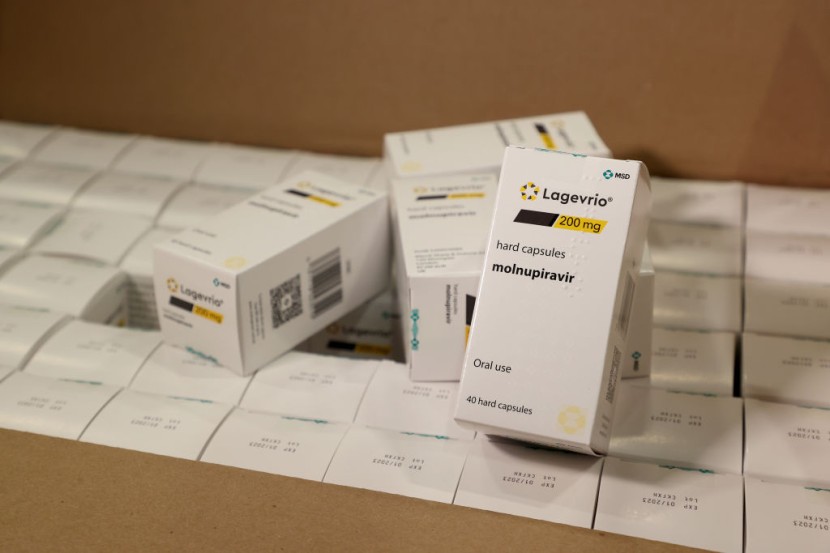
COVID-19 mutations that may be passed from patient to patient are linked to a popular medication produced by US pharmaceutical giant Merck to treat the virus. The research, which was peer-reviewed and published in Nature, may cause more people to question the drug's use and the billions of dollars spent by governments to acquire it.
Uptick in Mutations
Researchers examined a family tree of 15 million coronavirus sequences to determine when specific mutations happened, according to the Financial Times. The findings indicated an uptick in mutations in 2022, shortly after the widespread introduction of molnupiravir (trade name Lagevrio).
Those receiving molnupiravir who were older, at higher risk for severe illness, and from countries where the antiviral medication was more often used were also more likely to have mutations.
Since Omicron subvariants have driven the increase in cases with a substantial number of mutations, the results will cause health officials to worry about the efficacy of antiviral medications used to treat COVID-19 during the next busy fall.
Francis Crick Institute, University of Cambridge, University of Liverpool, University of Cape Town, Imperial College London, and the UK Health Security Agency researchers found that these mutations had a common signature with those seen in pharmacological trials.
According to lead author and Francis Crick Institute postdoctoral researcher Theo Sanderson, "Molnupiravir treatment can sometimes result in viruses that carry large numbers of mutations but remain viable, and in some cases transmissible," which can be taken into account when weighing the pros and cons of the drug.
He also noted that future medications with a similar mechanism of action should take into consideration the risk of long-lasting antiviral-induced mutations.
'Molnupiravir' Drug
Antiviral medications work by inhibiting the virus' ability to infect healthy cells, bolstering the immune system's capacity to clear the infection. Merck's marketed drug molnupiravir was developed in collaboration with a US biotech company called Ridgeback Biotherapeutics and is thought to act by causing minor mutations in the virus.
Although the genetic profile is not associated with any currently worrying abnormalities, the research reveals there were modest clusters of mutations that may spread across individuals. The use of this has not been connected to an increase in instances caused by Omicron variants such as BA. 2.86.
In 2022, it was reported that the European Medicines Agency had rejected marketing authorization for molnupiravir, and the drug is currently seldom used in other Western nations. After originally appealing the European regulator's judgment, Merck ultimately decided to drop the case, as reported by the Financial Times.
According to Andrew Hill, a senior visiting research fellow in the pharmacology and therapeutics department at Liverpool University, pregnant women may also be at risk for adverse consequences from the medicine.
Furthermore, according to the findings of a UK clinical study published last year, the medicine failed to demonstrate it might reduce the likelihood of hospitalization and mortality among those at greater risk from the condition.
© 2026 HNGN, All rights reserved. Do not reproduce without permission.








